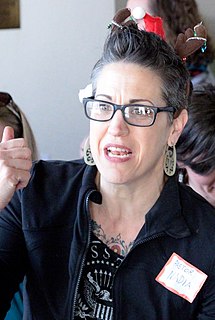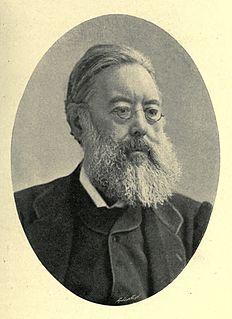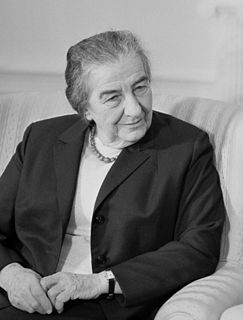A Quote by Martin Luther King, Jr.
We must develop and maintain the capacity to forgive. He who is devoid of the power to forgive is devoid of the power to love. There is some good in the worst of us and some evil in the best of us. When we discover this, we are less prone to hate our enemies.
Related Quotes
We forgive, if we are wise, not for the other person, but for ourselves. We forgive, not to erase a wrong, but to relieve the residue of the wrong that is alive within us. We forgive because it is less painful than holding on to resentment. We forgive because without it we condemn ourselves to repeating endlessly the very trauma or situation that hurt us so. We forgive because ultimately it is the smartest action to take on our own behalf. We forgive because it restores to us a sense of inner balance.
When we hate our enemies, we are giving them power over us: power over our sleep, our appetites, our blood pressure, our health and our happiness. Our enemies would dance with joy if only they knew how they were worrying us, lacerating us, and getting even with us! Our hate is not hurting them at al, but our hate is turning our days and nights into a hellish turmoil.
Forgiveness is a strange thing. It can sometimes be easier to forgive our enemies than our friends. It can be hardest of all to forgive people we love. Like all of life's important coping skills, the ability to forgive and the capacity to let go of resentments most likely take root very early in our lives.
They say that when god was in Jerusalem he forgave his murderers, but now he will not forgive an honest man for differing with him on the subject of the Trinity. They say that God says to me, "Forgive your enemies." I say, "I do;" but he says, "I will damn mine." God should be consistent. If he wants me to forgive my enemies he should forgive his. I am asked to forgive enemies who can hurt me. God is only asked to forgive enemies who cannot hurt him. He certainly ought to be as generous as he asks us to be.
We forgive, we mortify our resentment; a week later some chain of thought carries us back to the original offence and we discover the old resentment blazing away as if nothing had been done about it at all. We need to forgive our brother seventy times seven not only for 490 offences but for one offence.
The pure love of Christ can remove the scales of resentment and wrath from our eyes, allowing us to see others the way our Heavenly Father sees us: as flawed and imperfect mortals who have potential and worth far beyond our capacity to imagine. Because God loves us so much, we too must love and forgive each other.
A good end cannot sanctify evil means; nor must we ever do evil that good may come of it. We are too ready to retaliate, rather than forgive, or gain by love and information. And yet we could hurt no man that we believe loves us. Let us, then, try what love will do: for if men do once see that we love them, we should soon find they would not harm us. Force may subdue, but love gains; and he that forgives first, wins the laurel.
Conscience, the sense of right, the power of perceiving moral distinctions, the power of discerning between justice and injustice, excellence and baseness, is the highest faculty given us by God, the whole foundation of our responsibility, and our sole capacity for religion. ...God, in giving us conscience, has implanted a principle within us which forbids us to prostrate ourselves before mere power, or to offer praise where we do not discover worth.






































